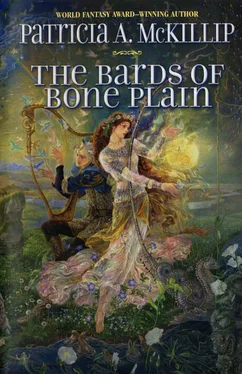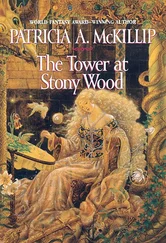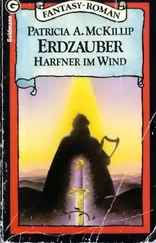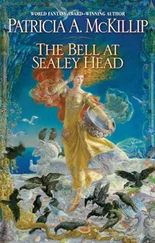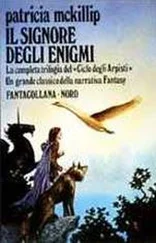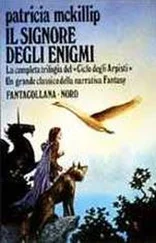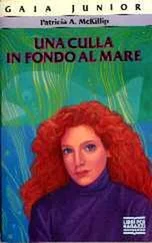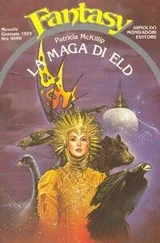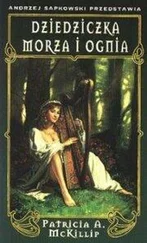Late in the afternoon, the last of the competitors played, a dilettante so inept he didn’t bother to finish his song, just broke off with a laugh and a wave. The musicians stretched their legs, had a bite to eat, talked tensely as they awaited the first round of eliminations. The amphitheater began to empty. An hour later the list of the musicians requested to return on the second day was read by one of the masters on the stage.
To his surprise, Phelan was among them.
“Good,” Zoe said simply, when they heard. “We are allowed to play with each other and against each other, tomorrow, if we request it. I’ll put us down together.”
“Why bother?” Phelan asked. “You should play against someone who might win. One of the court bards.” She only laughed at that. “Kelda, then.”
“That will come,” she said softly, seeing it, her smile gone for the moment. Then she looked at him again, and it returned. “Who would you rather lose to, than me?”
He smiled. “All right. Just tell me what to practice.”
She told him, then left to find Chase in the crowd lingering outside the amphitheater. Phelan looked for Beatrice, saw only Jonah, and went out another way to elude the argument waiting for him outside the Musicians Gate.
The princess looked reluctantly up from under the earth toward the end of the day, deliberately not thinking of what lay ahead, only wondering how Phelan had fared. He had sung to her all afternoon, the tender ballad echoing in her head, in a lovely diversion, like a songbird on her shoulder as she brushed and probed and sweated under the cascade of midsummer light. Finally, the light faded, went elsewhere; around her, tools began to slow.
The work crew stood silently, pondering the mystery pulled deep underground by its own ponderous weight.
“It has to be,” Campion said tiredly, leaving streaks from his fingers across his face as he rubbed an eyebrow. They all wore a pelt of dust over clothes and skin, as though they were slowly turning into strange burrowing creatures who measured their days by the hours they could spend underground and left their thoughts there when they came up, blinking, into the world.
The massive wall of yellow stone was riddled everywhere with runes, except for what they called the door stone; the center of that squat, massive oblong held only one symbol: a dot that coiled around and around itself until it ended in a perfect circle. Ida had uncovered it earlier, absently chattering to them all the while, telling some story of a disastrous party while her vigorous brushing was revealing another story entirely.
“Why,” she asked plaintively, gazing at the door. “Maybe it’s a sort of pantry. Or some kind of sweat lodge, an early spa—”
“Could be, I suppose,” Hadrian said dubiously, bending his thin frame backward and forward to unkink his spine.
“Doors,” Curran pointed out, “are meant to be used. Unless they’re meant to open once, then close something inside. Has to be a tomb. Likely we’ll never know, the way that stone is wedged in there now—looks so old it’s slumped and melted into itself.”
“A king’s tomb, maybe,” Beatrice murmured. “All that writing, that special mark on the door ...”
“Well.” Campion reached for his tool belt, slung it over his shoulder. “Jonah will know. Odd he hasn’t come to look at it yet.”
“He’s been at the competition,” Beatrice said, adding as they looked at her questioningly, “Phelan is playing.” She felt the warmth in her face as she said his name; luckily, she was so grimy nobody noticed.
“Does Jonah even know about this?” Curran asked.
“Oh, yes. I told him.”
Campion grunted. “Phelan must be good, to keep Jonah’s mind off his digs.”
“He roams at night,” Curran said wryly. “Along with the standing stones. Likely he’s already seen it.”
They clambered out then, leaving the mystery to the moon. They washed their faces in water and leftover tea from the thermoses, and pounded the dust off their clothes. Beatrice gave them a ride across the bridge, dropped them to catch their various trams, and turned reluctantly toward the awaiting squall. The last she had seen of the queen had been at the garden party. Beatrice had sent her a message from Jonah Cle’s house that evening, a rather incoherent one, she recalled, but who could be entirely rational after emerging in tattered stockings and a party dress out of a sewer in the company of a thousand-year-old legend?
The answer from the castle had been ominous silence.
She had time, at least, to wash and change before the summons came. Unexpectedly, it was from her father.
She found the king pacing among his antiquities, tossing comments over his shoulder to Master Burley.
“Beatrice. Your mother told me to talk to you,” he said brusquely. “Do you have any idea why?”
She smiled, enormously relieved. “Nothing to be concerned about,” she answered.
“Good. She said that you ran away after a party two days ago and were seen this morning in the company of Sophy Cle.” He picked up an ancient bone rattle, shook it absently, the whirling bones clicking wildly, to Master Burley’s consternation. “Anything you need to talk about?”
“I don’t think so, really. I think—somehow I might have fallen in love with Phelan Cle.”
His brows rose. “Phelan.” He gave the rattle a final spin, put it back down. “H’m.”
“Yes.”
“Well.” His hand hovered over a fine, very early piece of pottery. Master Burley closed his eyes. Beatrice watched her father’s expression change slowly, as he mused. He dropped his hand abruptly, leaving the pottery intact. “Well,” he said again, looking hopeful. “That could work. Couldn’t it? It gets tedious, trying to discuss antiquities with your brothers and Marcus. Anything else upsetting your mother?”
“Not that I can think of.”
“Good. Then we can move on to what you’ve unearthed in that dig of Jonah’s. Your mother said it was all you could talk about at her party. What on earth did you find?”
“Father, it’s the most amazing thing,” she told him eagerly. “A great creamy yellow stone tomb-looking sort of thing completely covered with runes. Except for the door. At least we think it’s a door. There’s only one symbol on that.”
“What symbol?” both the king and the curator demanded together.
“A circle that coils inward to a dot. Or maybe the other way around.”
“A coil,” her father murmured, and glanced at Master Burley. “Anything come to mind?”
“Nothing immediately, my lord. Perhaps the princess could draw it.”
“Of course.”
“I’ll find some dictionaries.”
He disappeared, came back with pencil, paper, and an armload of books. Beatrice drew the spiral within the circle, and they all pored among the books, draping themselves in various positions over the collection cases: Beatrice with both elbows on the glass covering a case of early spear and ax heads, studying a translation from the runic; the king leaning against a cupboard full of pottery pieces and flipping through a dictionary of early symbols.
“Anything?” the king murmured. Master Burley, poised like a bookend on the other side of the pottery cupboard, shut one book, opened another impatiently.
“You would think that such a simple, memorable symbol would be more easily found.”
“Not like ‘bread,’ ” Beatrice commented absently, twirling the pencil through her hair. “Perhaps it’s someone’s name?”
“Lucien!” the queen said despairingly, and the cases rattled alarmingly as they all straightened. She eyed her daughter frostily, then tossed her hands. “I give up, I really do. Have you even tried, Lucien? Have you spoken to your daughter at all?”
Читать дальше
